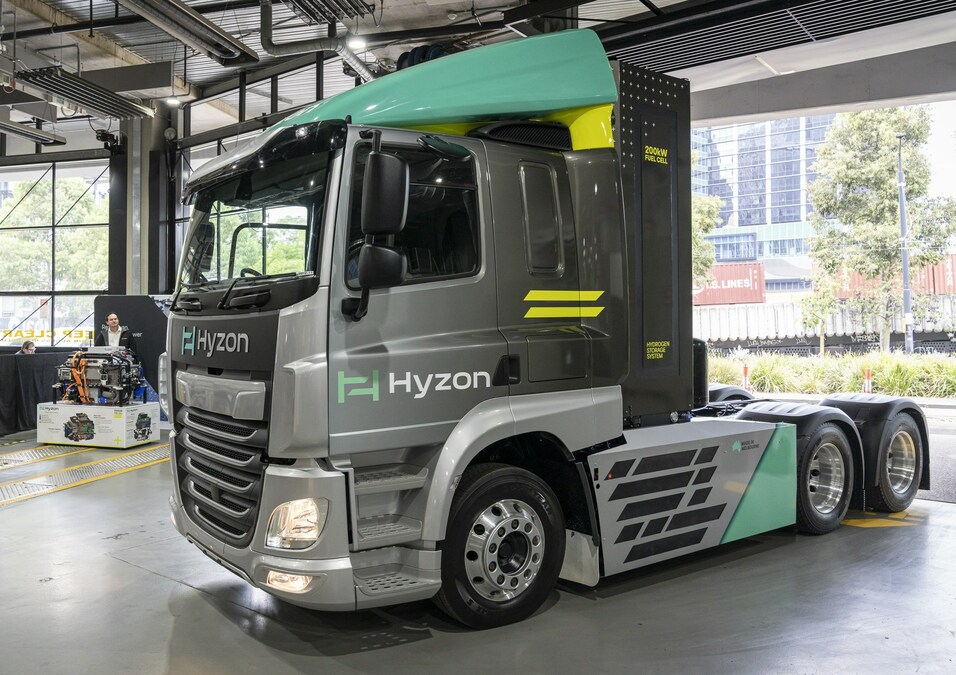
It's fascinating to see how the recent release of final regulations by the U.S. Department of the Treasury is generating excitement within Hyzon, a prominent developer in hydrogen fuel cell technology. The clarity provided by these regulations regarding eligibility and substantial tax breaks for companies acquiring qualified clean commercial vehicles, particularly those powered by hydrogen fuel cells, marks an important step forward.

A Boon for Hyzon and the Hydrogen Industry
The recent regulations bring significant advantages for Hyzon and the wider hydrogen fuel cell industry. Businesses such as Hyzon that enhance vehicles with hydrogen fuel cell powertrains are now eligible to be recognized as 'qualified manufacturers' under Section 45W of the Internal Revenue Code. This opens up a possibility for purchasers of these environmentally friendly commercial vehicles to receive a tax credit of up to $40,000.
This marks a significant achievement for Hyzon. The tax credit substantially lowers the initial cost of hydrogen-powered vehicles, making them an appealing choice for fleet operators and businesses shifting towards zero-emission transportation. As a result, this will boost demand for Hyzon's fuel cell technology, hastening its acceptance and driving forward the expansion of the hydrogen fuel cell industry overall.
"I applaud the Treasury Department's release of these final regulations, which make clear that upfitters like Hyzon can be a 'qualified manufacturer' and FCEVs upfitted by Hyzon can be eligible for the federal tax credit for qualified commercial clean vehicles under Section 45W of the Internal Revenue Code," said Parker Meeks, Chief Executive Officer of Hyzon . "This is a win for Hyzon and the entire hydrogen economy, which is prepared to power zero-emission transportation throughout the United States. Hyzon looks forward to continued engagement with policymakers to accelerate decarbonization and the deployment of hydrogen fuel cell technology."

>> In Other News: Ocean Power Technologies Announces Renewable Energy Production Milestone
Driving the Hydrogen Revolution
The recent regulatory changes serve as a strong motivator for embracing hydrogen-powered vehicles by reducing financial obstacles. This is likely to encourage companies to explore options like hydrogen fuel cell trucks, buses, and other heavy-duty vehicles. The resulting surge in demand will stimulate advancements and investments in hydrogen infrastructure, leading to an ongoing positive cycle that enhances the accessibility of this eco-friendly technology.
Hydrogen fuel cell vehicles play a crucial role in achieving a zero-emission future by producing no tailpipe emissions, providing an eco-friendly alternative to conventional diesel and gasoline-powered vehicles. Their widespread adoption holds great potential for significantly reducing greenhouse gas emissions, thereby contributing to combating climate change while enhancing air quality.
A Step Forward for Clean Energy
The recent regulations from the Treasury Department signify a significant leap towards advancing clean energy initiatives, showcasing the government's dedication to fostering an encouraging environment for eco-friendly technologies such as hydrogen fuel cells. These measures seamlessly fit into wider endeavors aimed at combating climate change by advocating sustainable transportation solutions.
The recent developments in regulations have immense potential to revolutionize the clean transportation sector. By increasing accessibility to hydrogen-powered vehicles, they are laying down a path for a future where clean transportation becomes not just a choice, but rather a norm.
The recent finalization of tax credit regulations for clean commercial vehicles marks an important victory not only for Hyzon but also for advancing environmental sustainability within the hydrogen fuel cell industry. These regulatory changes play a pivotal role in promoting widespread adoption of eco-friendly technologies by providing substantial tax incentives that expedite progress towards achieving a zero-emission future. With these encouraging developments in place, Hyzon continues its dedication to collaborating with policymakers and stakeholders to maximize the potential impact of hydrogen fuel cells in creating a greener and more sustainable transportation ecosystem.
Subscribe to the newsletter
Daily decarbonization data and news delivered to your inbox
Follow the money flow of climate, technology, and energy investments to uncover new opportunities and jobs.
Latest issues
-
Inside America’s Carbon Capture Reality Check
Inside This Issue ⚡ Duke Energy Florida Goes Live With First 100% Hydrogen System ✈️ Air bp Signs Agreement With Airbus on Flight Services and Fuel Supplies in Europe 🌊 Pairing Reefs and Mangroves...
-
Three Nebraska Plants Prove Ethanol CCS Actually Works
Inside this Issue 🌽 Three Nebraska Plants Prove Ethanol CCS Actually Works ☀️ SunHydrogen and CTF Solar Sign Agreement to Accelerate Hydrogen Panel Manufacturing 🧪 GenH2 Completes Major Milestone:...
-
DOE Doubles Down on $1/kg Clean Hydrogen Goal
Inside This Issue 🎯 Doe Doubles Down on $1/kg Clean Hydrogen Goal 🕳️ Quebec Introduces First Legal Framework for Underground CO2 Storage 🧪 Charbone Announces Its First Hydrogen Supply Hub in the O...
Company Announcements
-
JERA Announces Close of Haynesville Shale Gas Asset in Louisiana
TOKYO and HOUSTON, Feb. 12, 2026 /PRNewswire/ -- JERA Co. Inc., a global energy leader and Japan's largest power generation company, today announced that through its subsidiary JERA Americas Inc., ...
-
Buffalo Biodiesel Inc. (“BBD”), a leading recycler of waste vegetable used cooking oil (WVUCO) and producer of renewable feedstocks, announced that they have officially renewed a Part 364 Waste Tra...
-
Air bp Signs Agreement With Airbus on Flight Services and Fuel Supplies in Europe
Air bp has signed a multi-year contract with Airbus for the supply of conventional aviation fuel, sustainable aviation fuel (SAF), and related services in Germany and Spain. This agreement enables ...
-
BEND, Ore.--Element 1® Corp. (“e1”), an Oregon-based leader in methanol-to-hydrogen generation technology, today announced the signing of a Memorandum of Understanding (MOU) with Aurosi Precision C...